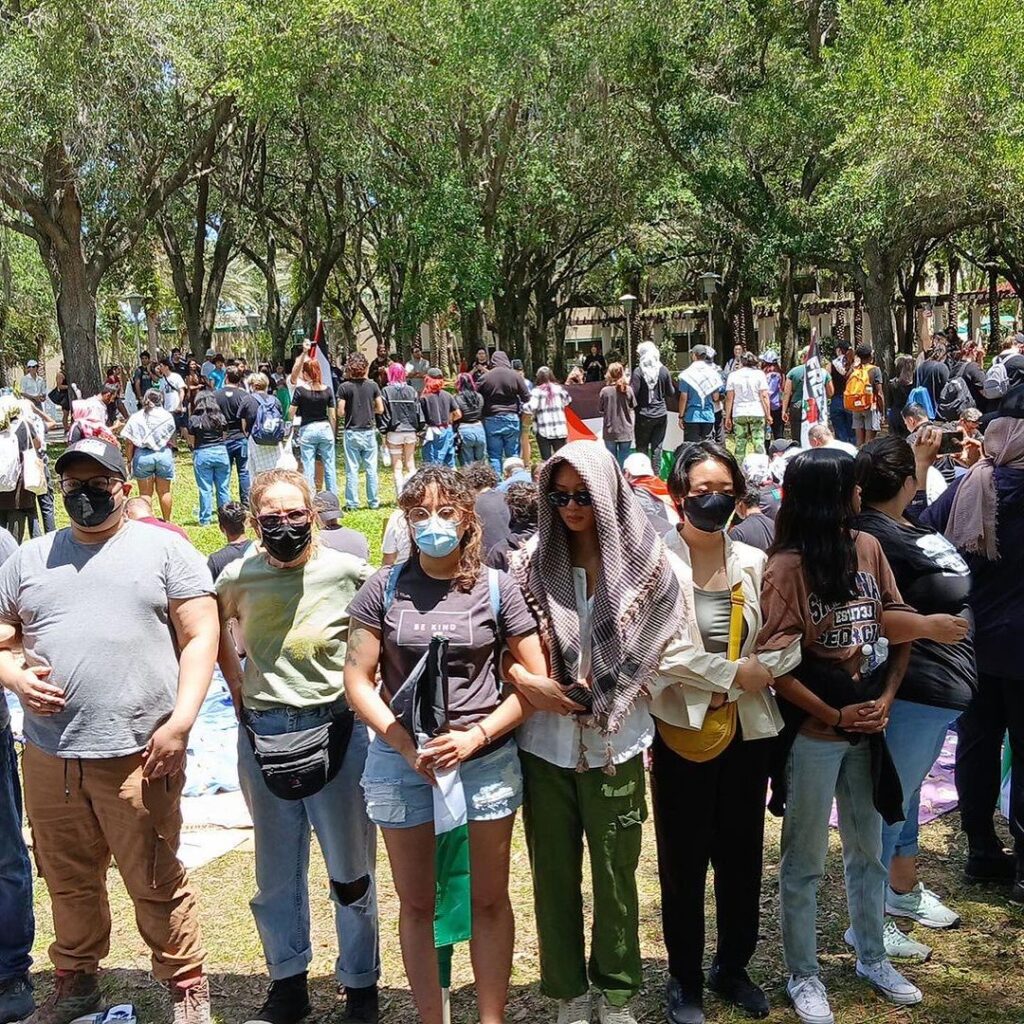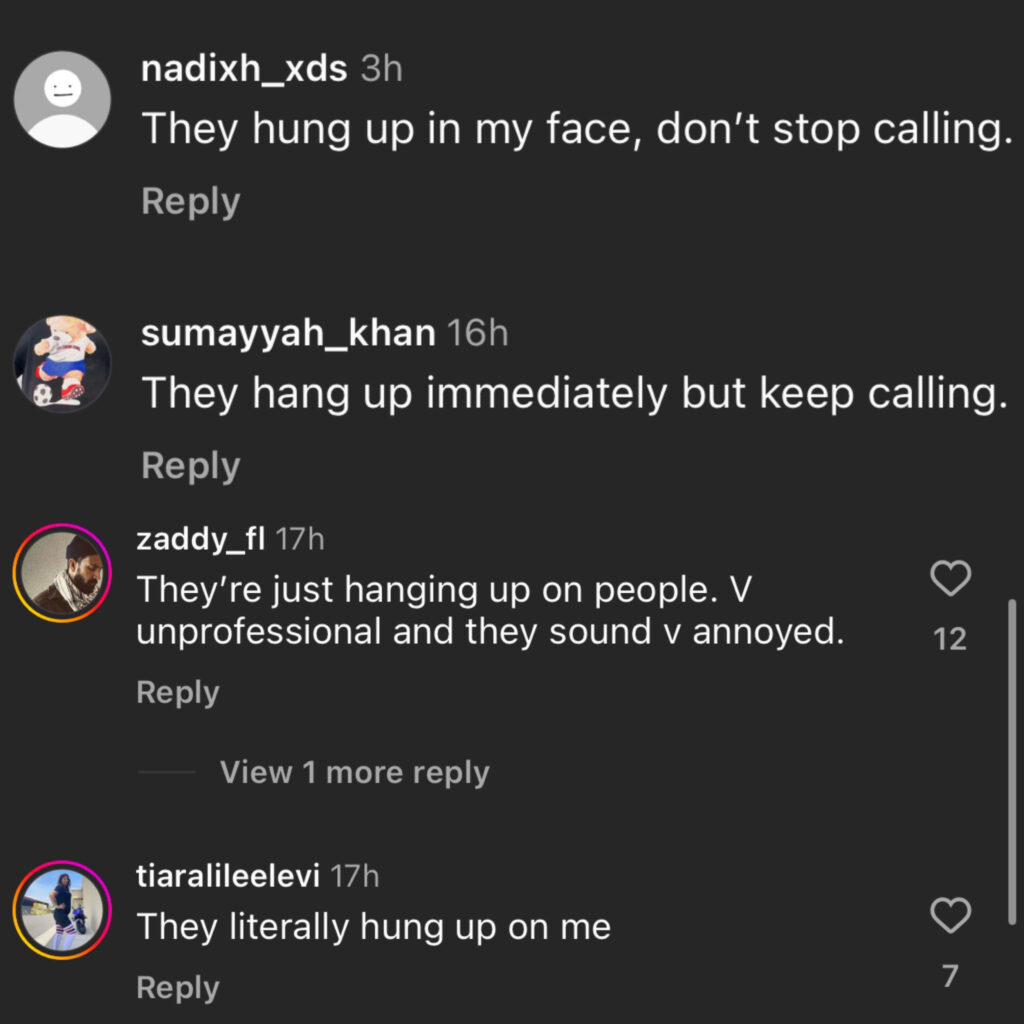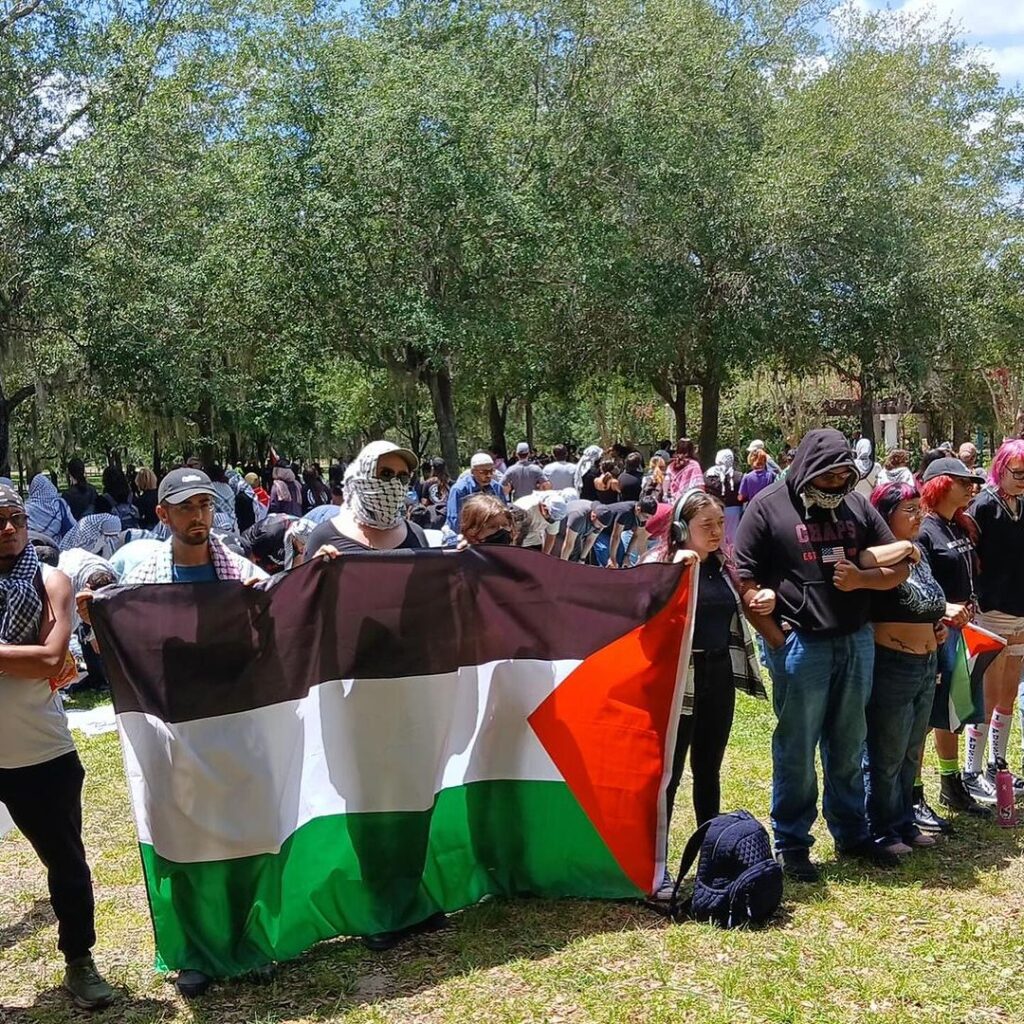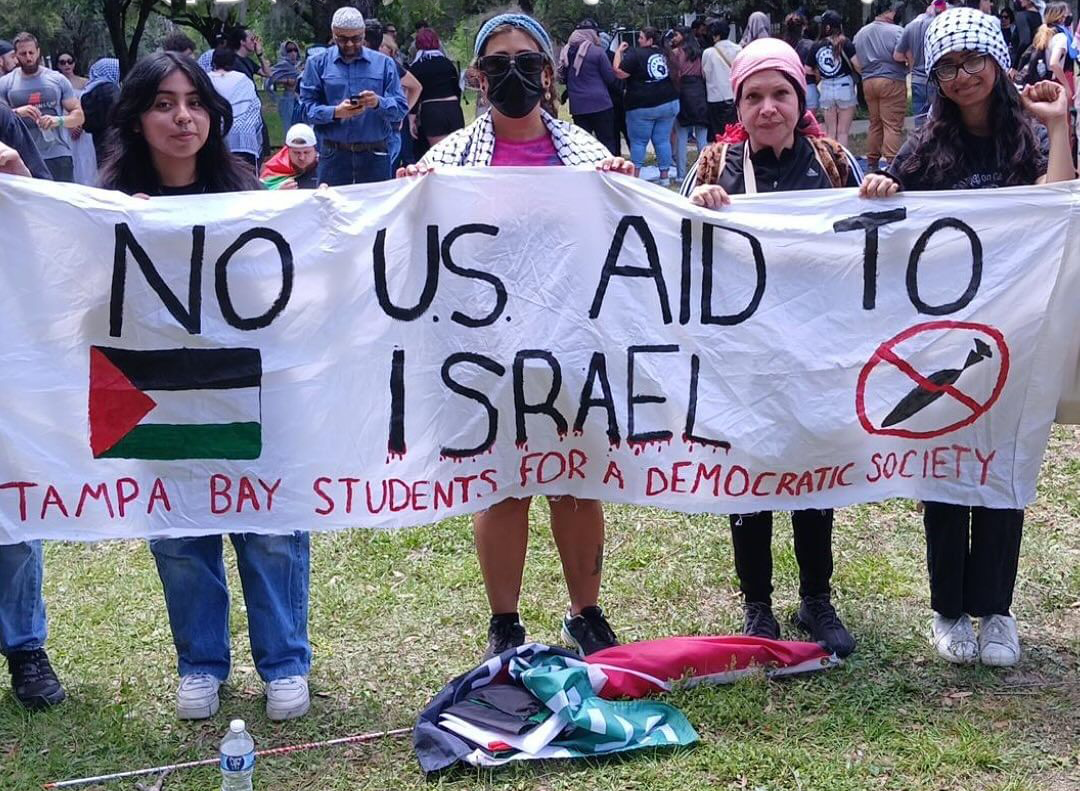Following nationwide demonstrations, three pro-Palestine protesters were arrested at a University of South Florida encampment.
Image courtesy of tampabaysds on Instagram.
By Aubrey Carr and Riley Benson
Police arrested a student and other protestors at a pro-Palestinian protest and encampment at the University of South Florida Tampa campus on April 29.
The victims were “brutalized,” according to the USF Divest Coalition, the team that led the student hunger strike and divest from Israel Student Government resolution, earlier this semester.
“What USF has done to students today is unconstitutional. They are choosing to stand on the wrong side of history and support a genocide while sending cops to brutalize and arrest protestors and students on campus. They should be ashamed and we know that this only makes students more angry and ready to fight against this,” Victoria Hinckley, a sociology senior at USF, said. She has also been an organizer with the USF chapter of Students for a Democratic Society (SDS) for almost 3 years.

SDS was the group that organized and hosted the April 29 protest and encampment.
According to Hinckley, three people were arrested — one student, one faculty member and one alumnus. She stated that the protest was met with “a large amount of repression from administration.”
In a video posted to Instagram on April 29, police are seen putting their knees on the protesters’ upper backs and hands around their necks. Shortly after the incident, SDS urged their followers to call-in the USF Tampa Police Department to have the charges dropped on those arrested.
Many commenters reported that when they call in, they are being immediately hung up on. They are also notifying their followers to donate to a bail fund for those arrested.

Comments left on SDS’ Instagram noting that calls have allegedly been hung up on. | The Crow’s Nest
As of the evening of April 29, one of those arrested, had their release expedited and bond paid. The person was charged with two misdemeanors: trespassing and resisting arrest without violence, SDS posted to it’s Instagram.
SDS’ goals in hosting the protest were to urge USF to divest from investment firms that fund Israel initiatives, disclose all of USF’s investments with the student body, put out a statement of solidarity of Palestine and stop attacks on student movements.
Ahead of the USF protests and in response to protests on college campuses across the country, the USF’s Dean of Students Office released a statement on April 28 about demonstration policies on all three campuses.
“As always, your safety is our top priority. Free speech is expected and protected on our campuses, but violence, threats and harassment are not acceptable,” the statement, which was emailed to the student body, said. “In light of this academically intense time of year on our campuses, and events occurring around the country at other universities, I also want to remind you of our policies on events, tents and demonstrations on campus.”
The email continued by stating that tents are not allowed on campus premises without prior approval and the sponsorship of a university organization or club.
According to the Dean of Students Office, no organization has registered such an event for the week of finals.
Some students believe this statement to be an attack on their right to free speech.
“Prior to the protest we had multiple threats from USF administration saying that we do not have the right to free speech on campus and that we do not have the right to protest,” Hinckley said.
The email further stated that non-compliance with these policies could result in suspension and further action for individuals through the student conduct process.
While USF’s policy regarding events does not condemn protests, it does state that, “the activity must not disrupt the University’s mission or business,” allowing the school to determine what event may be considered disruptive.

The enforcement of this policy comes in light of country-wide pro-Palestine protests, calling on universities to divest from Israel-linked companies.
Last month on the Tampa campus, student demonstrators enacted a hunger strike as a protest against the university’s investment portfolio. Administration urged students against the protest, citing health concerns — but the group followed through.
After two weeks, the group ended the hunger strike due to health problems.
“While our demands were not met, we are merely beginning our fight for divestment at USF,” a protester posted on their now-deleted Instagram account.
The protests continue on other college campuses, with Columbia University acting as the spearhead with hundreds of students and faculty camping on campus grounds in around-the-clock demonstrations since April 18. Other universities, like Barnard, Emory and Yale, have since followed, resulting in at least 600 arrests across the nation, according to Axios.



